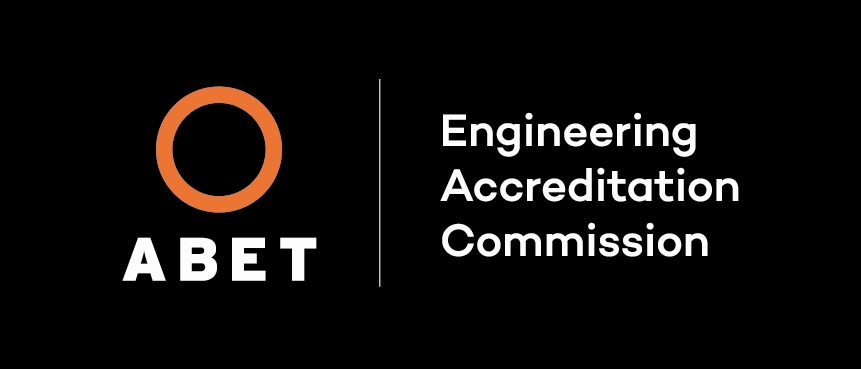Accreditation

| ITU Aeronautical Engineering Undergraduate Program accredited by the Engineering Accreditation Commission (EAC) of ABET.http://www.abet.org / |
Mission
The mission of the Aeronautical Engineering Department is to educate individuals both in undergraduate and graduate levels for careers in the aircraft industry; Conduct basic and applied research in the aircraft field that will contribute to the body of scientific knowledge and support the department’s education programs; Develop and maintain a capability of transforming findings of the research carried out at the department into economical progress and benefit of the society.
Program ABET Coordinator
Asst. Prof. Özge ÖZDEMİR
| Phone: | +90 212 285 3190
|
| E-mail: | ozdemirozg@itu.edu.tr |
Educational Objectives
The educational objectives of the Aeronautical Engineering undergraduate program are for its graduates to achieve the following career and professional accomplishments in aeronautical engineering and related engineering and scientific fields:
- To become skilled engineers, firmly grounded in mathematics, physics, and engineering fundamentals, for professional practice or post-baccalaureate studies as their aptitudes and career goals may dictate.
- To conceptualize, design, analyze and test systems and components, with a broad understanding of engineering design principles and applications.
- To develop algorithms and to use modern computational/simulation software in creating new knowledge and practical engineering solutions.
- To develop as individuals and professionals, communicating effectively, contributing as team members, engaging in life-long learning, behaving in a professional and ethical manner, and functioning capably with people from diverse backgrounds.
The Aeronautical Engineering Student Outcomes are as Follows:
a) an ability to apply knowledge of mathematics, science, and engineering
b) an ability to design and conduct experiments, as well as to analyze and interpret data
c) an ability to design a system, component, or process to meet desired needs within realistic constraints such as economic, environmental, social, political, ethical, health and safety, manufacturability, and sustainability
d) an ability to function on multidisciplinary teams
e) an ability to identify, formulate, and solve engineering problems
f) an understanding of professional and ethical responsibility
g) an ability to communicate effectively
h) the broad education necessary to understand the impact of engineering solutions in a global, economic, environmental, and societal context
i) a recognition of the need for, and an ability to engage in life-long learning
j) a knowledge of contemporary issues
k) an ability to use the techniques, skills, and modern engineering tools necessary for engineering practice.
For the Curriculum and Course Syllabi click here
For the resumes of academic staff click here
For the department page click here
Annual Statistics
Years
| Enrolled Students | Number of Graduate |
| 2009 | 94 | 59 |
| 2010 | 57 | 64 |
| 2011 | 54 | 47 |
| 2012 | 102 | 71 |
| 2013 | 54 | 63 |
| 2014 | 36 | 70 |
| 2015 | 52 | 91
|